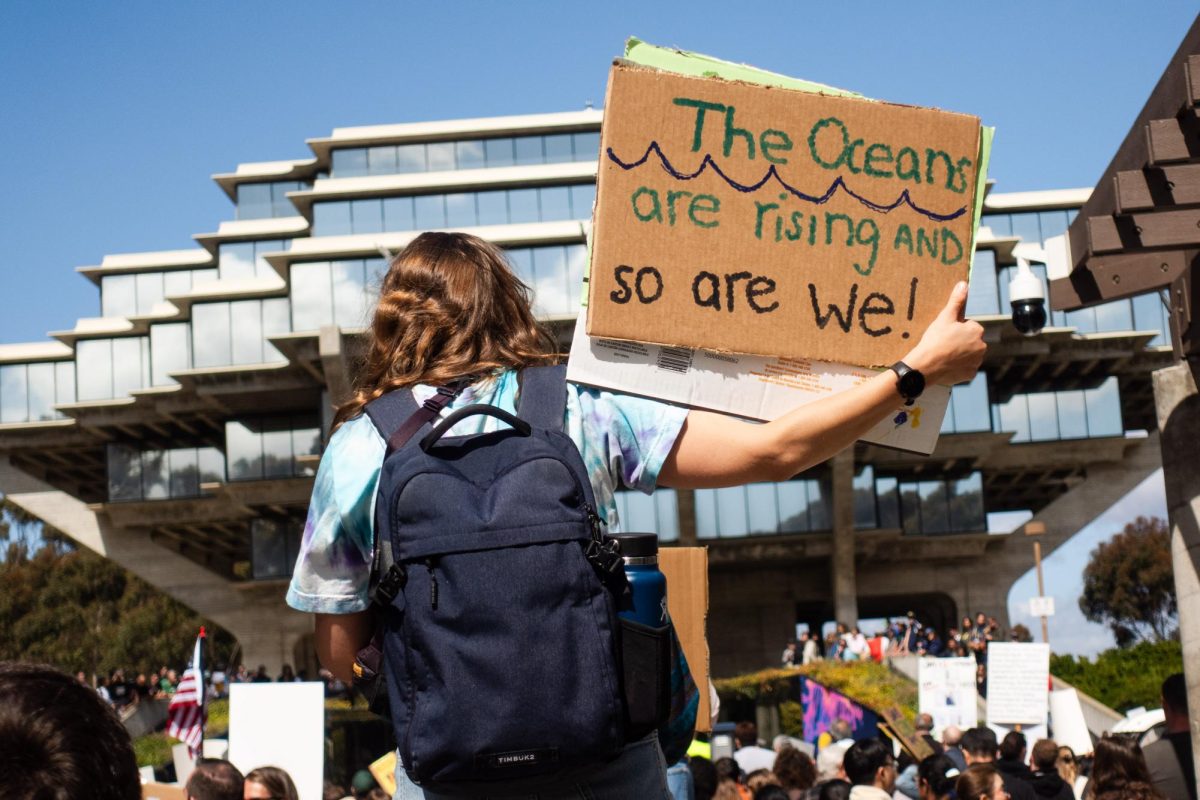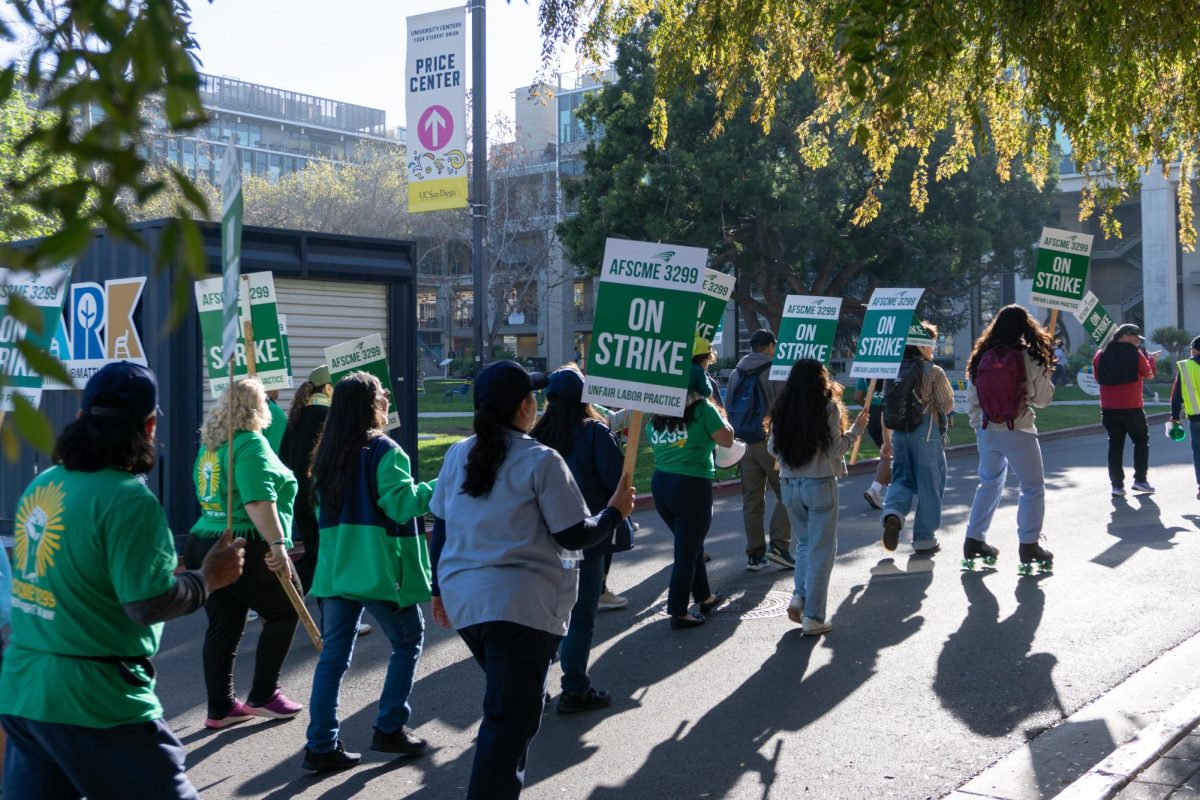The resolution was drafted by members of several campus organizations — including Students for Justice in Palestine and the Student Sustainability Collective — and approved by Transfer Senator Adam Powers and Campuswide Senator Desiree Prevo. According to Associate Vice President of Enterprise Operations Rishi Ghosh — a co-sponsor of the resolution — the council was inspired by a similar effort at UC Berkeley, where the resolution passed 16-4 in the student Senate, but was eventually vetoed by Berkeley A.S. President Will Smelko.
The resolution calls for the UC system to stop investing in companies such as General Electric and United Technologies, which supporters of the resolution claim promote violence by providing technology — such as helicopters and aircraft engines — to warring countries around the world.
Sixth College senior Leena Barakat — who helped draft the resolution — said the UCSD version was altered to ensure that it condemned human-rights violations as a whole, and not specifically actions taken by the state of Israel. According to Barakat, it is the second such resolution to be proposed at an American university, the first being at Berkeley.
“We really tried to make the bill more universal and clarify that to uphold the ideals of corporate social responsibility, we should divest from U.S. companies that are benefitting from occupancies elsewhere,” Barakat said. “The bill is really watered down from the one at Berkeley, which directly targeted Israel — but we mention other areas such as Iran and Morocco. It is not anti-Israel.”
She acknowledged that any official change in the university’s investment procedures would have to be decided by the UC Board of Regents, but said that similar resolutions have been influential in the past. She referred specifically to an instance when Nelson Mandela identified the university’s divestment from South Africa as an important factor in ending the apartheid reign in that country.
“Of course, the actual decision will go to the regents, but it is a call to divest to show that we are listening and we understand,” Barakat said.
A.S. Engineering Senator Adi Singer — a member of the pro-Israel community and creator of the Facebook group “Students Against ASUCSD Anti-Israel Bias and Resolutions” — said the resolution is a pointed attack against Israel.
“It’s a very thinly veiled political statement,” Singer said. “If it’s about all human-rights violations, why are there a ton of citings specifically about Gaza and very few about anywhere else?”
Although Ghosh said the resolution has received endorsements from groups such as Jewish Voices for the Peace and that information in the resolution regarding companies profiting from occupancy was provided by the United Nations, Singer maintained that the draft is biased.
“My main issue with this is that it’s very one-sided,” Singer said. “It’s not hard to find news sources that support your point of view. I can go on the Internet right now and find tons of sources that say that the Holocaust never happened.”
She added that the resolution would be detrimental to relations between Israeli and Palestinian interest groups on campus.
“Say what you want about it — the intent is clear,” she said. “The pro-Israel community has been trying really hard to build relations with the pro-Palestine community, and we would never bring up a resolution against Hamas.”
Tritons for Israel President Dafna Barzilay said it is not the council’s place to pass resolutions pertaining to international issues.
“We don’t support any such resolutions, even if it was pro-Israel or anti-Hamas,” she said. “It’s not the business of A.S. to support international problems that require that scale of spending and is not directly related to the university.”
In contrast, Ghosh said it is the council’s duty to be aware of global issues.
“If they believe that, why weren’t they there when we passed a resolution to support Haiti with allocations?” he asked. “Why weren’t they in the past, when we’ve been fighting for human rights in Sudan, fair trade in Africa?”
He said the resolution is meant to be a politically-neutral gesture.
“It is not anti-Israel,” he said. “Israel was very cleverly kept out of it.”
Barzilay said that, regardless of past circumstances, it is doubtful the resolution will have any effect other than dividing the campus.
“What will it do realistically?” she said. “I don’t think the regents will divest from these companies, and, in the grand scheme of things, I don’t think it will help create peace in any way.”
The council will discuss the passage of the resolution at their meeting this Wednesday, April 30, at 6 p.m. in the Price Center East forum.
Readers can contact Angela Chen at [email protected].







